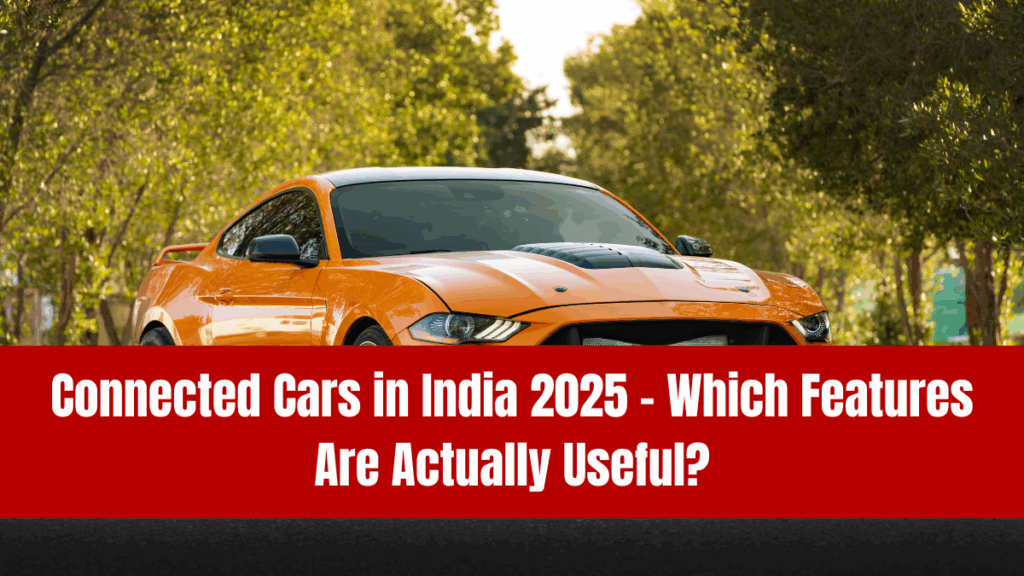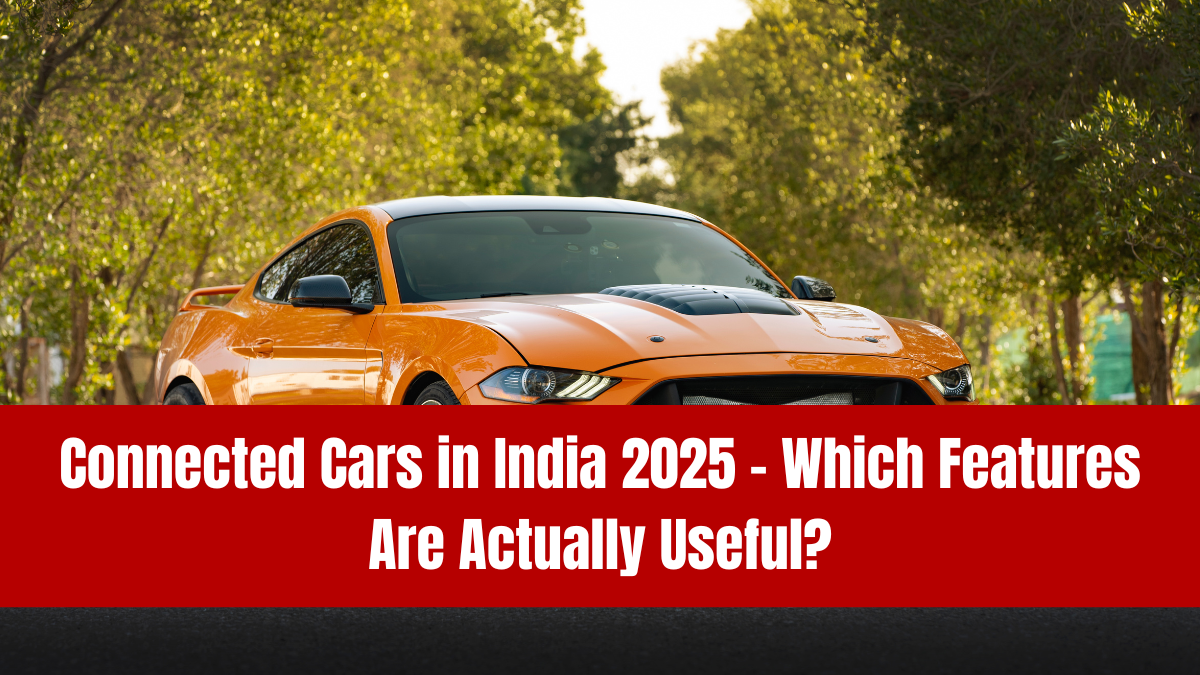The concept of connected cars in India has evolved rapidly, and by September 2025, smart vehicles are no longer just a luxury feature but a mainstream reality. Automakers from Hyundai and Tata to Kia and Mahindra are equipping their vehicles with IoT-based features that connect the car to the internet, smartphones, and cloud platforms.
While the market is buzzing with high-tech features, many buyers are still asking: Which connected car features are truly useful in daily life, and which are just gimmicks?

What Are Connected Cars?
A connected car uses embedded sensors, SIM cards, and cloud-based technology to exchange data with external devices. This enables features like real-time navigation, remote diagnostics, safety alerts, and over-the-air updates. In India, connected cars are especially appealing to urban buyers who want both convenience and safety in crowded traffic conditions.
Most Useful Connected Car Features in 2025
1. Real-Time Navigation with Traffic Updates
No more depending only on Google Maps. OEM apps now integrate AI-powered navigation with live traffic and alternate route suggestions, helping drivers save time during peak hours in cities like Delhi, Mumbai, and Bengaluru.
2. Remote Car Control
Owners can lock/unlock, start the engine, or set the AC temperature remotely through smartphone apps. For example, Tata iRA, Hyundai Bluelink, and Kia UVO make it possible to cool down the cabin before entering on a hot day.
3. Vehicle Health Monitoring
Connected cars continuously track engine health, battery status, and fuel levels. Apps send alerts about servicing schedules, low battery, or engine issues, reducing the risk of breakdowns.
4. Safety and Emergency Assistance
-
Automatic SOS Alerts: Car sends location to emergency services after an accident.
-
Geo-Fencing: Alerts when the car leaves a pre-set boundary (useful for families with young drivers).
-
Stolen Vehicle Tracking: Real-time GPS tracking to help recover stolen cars.
5. Over-The-Air (OTA) Updates
Manufacturers now push software upgrades directly to cars, just like smartphones. In September 2025, this feature has become standard in models like the Hyundai Creta EV and Tata Harrier EV.
6. Voice-Activated Controls
Cars now integrate with Alexa, Google Assistant, and Siri, allowing drivers to control music, AC, and navigation without distraction.
Features That Are Still Gimmicky
Not every connected car feature adds real value:
-
Social Media Integration: Posting updates directly from cars feels unnecessary.
-
Gaming Screens for Rear Seats: Fun for kids, but not practical for everyday use.
-
Unreliable AI Predictions: Fuel-saving or eco-driving tips often lack accuracy.
These features may evolve, but as of now, they remain more marketing-driven than useful.
Indian Automakers Leading the Way
-
Tata Motors: iRA 2.0 with multilingual voice support.
-
Mahindra: AdrenoX system in the XUV700 and upcoming models.
-
Hyundai/Kia: Bluelink and UVO systems with advanced safety features.
-
Maruti Suzuki: Expanding Suzuki Connect across Arena and Nexa models.
These OEMs are ensuring connected car tech is no longer limited to premium models but also available in compact cars and SUVs.
Challenges Facing Connected Cars in India
1. Internet Connectivity
While 5G rollout is underway, rural and semi-urban areas still face patchy coverage, limiting the usefulness of real-time connected features.
2. Data Privacy Concerns
As cars collect and transmit user data, cybersecurity and privacy laws are becoming crucial. Automakers need to ensure secure encryption and data storage.
3. Cost of Ownership
Connected features add to the cost of cars. Subscription fees for premium services can range from ₹3,000–₹10,000 annually, which may discourage budget-conscious buyers.
Expected Price Range of Connected Cars in 2025
In September 2025, connected features are available across a wide price range:
-
Entry-Level Models: Starting from ₹8 lakh (e.g., Tata Nexon, Hyundai Venue).
-
Mid-Range SUVs: ₹15–20 lakh (e.g., Kia Seltos, Mahindra XUV700).
-
Premium Models: ₹25 lakh+ (e.g., Toyota Fortuner Legender, Skoda Octavia RS iV).
This democratization ensures more Indians can access smart features at different price points.
Who Should Buy Connected Cars in 2025?
-
Urban Commuters: Need real-time traffic navigation and safety alerts.
-
Families: Remote monitoring and geo-fencing provide peace of mind.
-
Tech-Savvy Professionals: Enjoy smart integrations like voice control and OTA updates.
-
Frequent Travelers: Emergency support and vehicle health tracking are game changers.
Verdict: Are Connected Cars Worth It?
By September 2025, connected cars have moved beyond luxury and become a mainstream requirement. Features like real-time navigation, remote control, and emergency alerts are genuinely useful, while some entertainment-driven features remain optional gimmicks.
For buyers in India, connected cars provide not only convenience and safety but also align with the country’s broader digital ecosystem. As 5G spreads and regulations improve, the connected car experience will only get stronger in the years ahead.
FAQs
What are connected cars?
Connected cars use IoT technology to connect with the internet, smartphones, and cloud systems, enabling smart features like navigation, remote control, and health monitoring.
Are connected car features available in budget cars?
Yes, models like the Tata Nexon and Hyundai Venue now come with connected features under ₹10 lakh.
Do connected cars require internet to work?
Yes, most features need internet connectivity, though some like ABS, airbags, and sensors work independently.
Are connected cars safe from hacking?
Manufacturers are adding advanced encryption, but data privacy remains a concern in 2025.
Do connected cars cost extra in India?
Yes, many manufacturers charge annual subscription fees for premium features.
